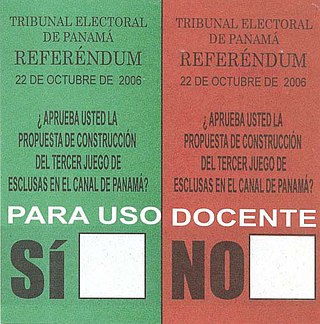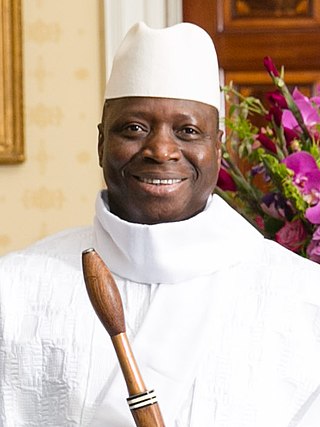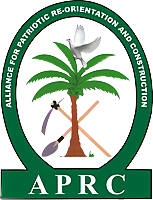
The Gambia, officially the Republic of The Gambia, is a country in West Africa. It is the smallest country within mainland Africa and is surrounded by Senegal, except for its western coast on the Atlantic Ocean. The Gambia is situated on both sides of the lower reaches of the Gambia River, the nation's namesake, which flows through the centre of the Gambia and empties into the Atlantic Ocean, thus the long shape of the country. It has an area of 11,300 square kilometres (4,400 sq mi) with a population of 1,857,181 as of the April 2013 census. Banjul is the Gambian capital and the country's largest metropolitan area, while the largest cities are Serekunda and Brikama.

Politics of The Gambia takes place within the framework of a presidential republic, whereby the President of The Gambia is both head of state and head of government, and of a multi-party system. Executive power is exercised by the government. Legislative power is vested in both the government and parliaments.

Voting is a method by which a group, such as a meeting or an electorate, convenes together for the purpose of making a collective decision or expressing an opinion usually following discussions, debates or election campaigns. Democracies elect holders of high office by voting. Residents of a jurisdiction represented by an elected official are called "constituents," and the constituents who choose to cast a ballot for their chosen candidate are called "voters." There are different systems for collecting votes, but while many of the systems used in decision-making can also be used as electoral systems, any which cater to proportional representation can only be used in elections.

Yahya Abdul-Aziz Jemus Junkung Jammeh is a Gambian politician and former military officer who was the leader of The Gambia from 1994 to 2017, firstly as chairman of the Armed Forces Provisional Ruling Council (AFPRC) from 1994 to 1996 and then as President of the Gambia from 1996 to 2017.

The United Democratic Party is a political party in the Gambia, founded in 1996 by 3 political parties and choose the human rights lawyer, freedom fighter, ANM Ousainou Darboe to be the party leader and Secretary General. As a candidate in the presidential election of 18 October 2001, he came second with 32.6% of the popular vote; he took second place again in the 22 September 2006 presidential election with 26.7% of the vote. The 17 January 2002 parliamentary election was boycotted by the party. In the 25 January 2007 parliamentary election, the party won four out of 48 seats.

Elections in Kazakhstan are held on a national level to elect a President and the Parliament, which is divided into two bodies, the Majilis and the Senate. Local elections for maslihats are held every five years.

The Gambia elects on national level a head of state – the president – and a legislature. The president is elected for a five-year term by the people. The National Assembly has 53 members, 48 members elected for a five-year term and 5 members appointed.

The Alliance for Patriotic Reorientation and Construction (APRC) is a political party in The Gambia. Founded by army officers who staged a coup in 1994, it was the dominant ruling party from 1996 until 2016 with president Yahya Jammeh.

Halifa Sallah is a Gambian politician who is currently a member of the National Assembly representing Serekunda, and the secretary-general of the People's Democratic Organisation for Independence and Socialism (PDOIS). He served as a spokesman and advisor to President Adama Barrow from during the 2016 presidential election campaign until March 2017.

Ousainou Darboe is a Gambian politician and lawyer who serves as the National Assembly Minority Leader since April 2022. He previously served as Vice-President of the Gambia and Minister of Women's Affairs from June 2018 to March 2019, under President Adama Barrow. He also served as Barrow's Minister of Foreign Affairs from February 2017 to June 2018.

Hamat Ngai Kumba Bah is a Gambian politician who is the current Minister of Tourism and Culture in President Adama Barrow's cabinet. He is also the leader of the National Reconciliation Party (NRP) and has been a presidential candidate in 1996, 2001 and 2011. He was the National Assembly Member for Upper Saloum from 1997 to 2005.

General elections were held in Zambia on 20 September 2011, electing a President and members of the National Assembly. Michael Sata of the Patriotic Front (PF) won the presidential elections, defeating incumbent Rupiah Banda of the Movement for Multi-Party Democracy (MMD), and was sworn into office on 23 September. The PF emerged as the largest party in the National Assembly, winning 60 of the 148 seats decided on election day.

Presidential elections were held in the Gambia on 24 November 2011. Incumbent President Yahya Jammeh, in office since seizing power in a 1994 coup, faced Ousainou Darboe of the United Democratic Party and Hamat Bah of the National Alliance for Democracy and Development.

Presidential elections were held in The Gambia on 1 December 2016. In a surprise result, opposition candidate Adama Barrow defeated long-term incumbent Yahya Jammeh. The election marked the first change of presidency in The Gambia since a military coup in 1994, and the first transfer of power by popular election since independence from the United Kingdom in 1965.

General elections were held in Liberia on 10 October 2017 to elect the President and House of Representatives. No candidate won a majority in the first round of the presidential vote, so the top two finishers — CDC standard-bearer Amb. George Weah and UP standard-bearer Vice President Joseph Boakai — competed in a run-off on 26 December. The second round was originally scheduled for 7 November, but was postponed after LP standard-bearer Cllr. Charles Brumskine, in third place, challenged the result in the Supreme Court. The Supreme Court dismissed the challenge, which would have forced a re-run of the first round had it been successful, and the second round was held on 26 December. Weah emerged victorious with 60% of the vote.

Adama Barrow is a Gambian politician and real estate developer who has served as President of the Gambia since 2017.

The Gambian constitutional crisis occurred following presidential elections in December 2016, in which challenger Adama Barrow achieved an upset victory over longtime incumbent Yahya Jammeh. It eventually concluded after a military intervention by the Economic Community of West African States (ECOWAS) led to Jammeh’s departure from the country.

The ECOWAS military intervention in the Gambia or the ECOWAS Mission in The Gambia – initially code-named Operation Restore Democracy – is an ongoing military intervention in The Gambia by several member states of the Economic Community of West African States.

United Nations Security Council Resolution 2337 was a measure unanimously adopted by the United Nations Security Council (UNSC) on 19 January 2017. It expressed support for efforts by ECOWAS to peacefully resolve the 2016–2017 Gambian constitutional crisis, calling on President Yahya Jammeh to step down and allow a peaceful transition to the President-elect, Adama Barrow, as well as supporting the African Union and ECOWAS decisions in recognizing Adama Barrow as the new president. The measure was adopted by a vote of 15 supporting, none opposed, and none abstained.

Presidential elections were held in the Gambia on 4 December 2021. The result was a victory for incumbent President Adama Barrow of the National People's Party, who received 53% of the vote, defeating five other candidates.




















